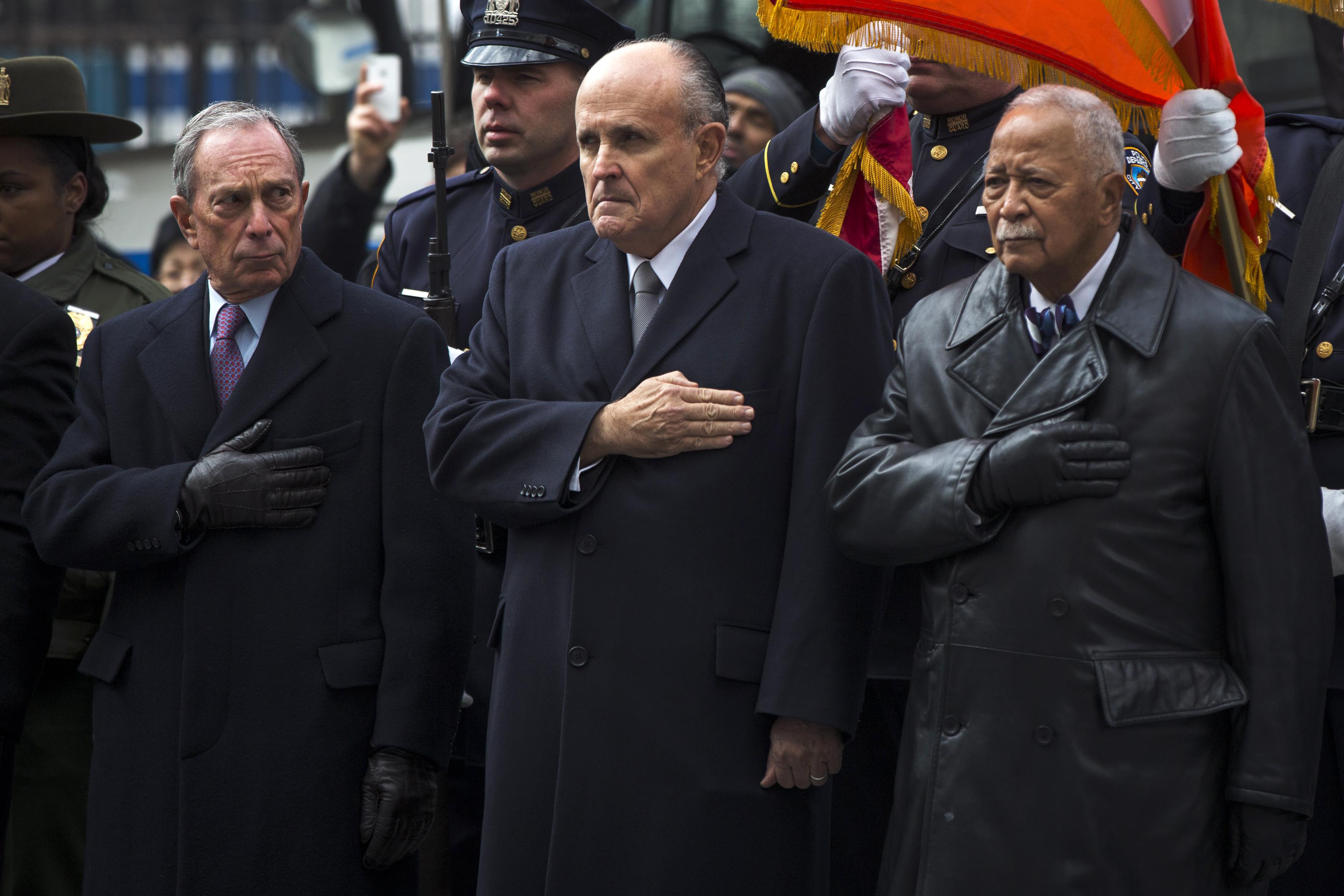The Patrolmen’s Benevolent Association, the most prominent union representing New York City police officers, made headlines after the murder of NYPD officers Wenjian Liu and Rafael Ramos when union leader Patrick Lynch said that city Mayor Bill de Blasio was partly responsible for the killings:
“There is blood on many hands, from those that incited violence under the guise of protest to try to tear down what police officers did every day,” Mr. Lynch said.
“That blood on the hands starts on the steps of city hall in the office of the mayor.”
De Blasio has said recently that New York’s officers need to improve their relationships with the communities they serve, though he has (needless to say) not called for violence against police. (He also condemned the murders of Liu and Ramos as an attack upon “the very foundation of our society.”) De Blasio is probably not surprised by Lynch’s comments, though: the union has attacked at least the last four New York mayors, including law-and-order Republican Rudy Giuliani, in similarly aggressive fashion. Former New York Times reporter David Firestone highlighted the PBA’s history in a series of tweets today:
The past Times pieces Firestone links to describe:
- Off-duty officers attending a 1992 rally against Democrat David Dinkins who were seen “jumping barricades,” “tramping on automobiles,” and stopping traffic on the Brooklyn Bridge.
- The 1997 circulation of a flier (which was not officially union-endorsed) that officers could sign to request that Giuliani not attend their funerals if they were killed in the line of duty. The mayor was engaged in a contract disupte with police and some union leaders had been indicted for racketeering by federal prosecutors; the Times wrote that “many police officers” believed Giuliani orchestrated the indictments. In 1996, the union’s leader at the time had said the mayor “certainly doesn’t enjoy the support of the PBA.” (In 2007, when Giuliani was running for president, Patrick Lynch said the PBA “could never support Rudy Giuliani for any elected office.”)
- Officers picketing Republican Michael Bloomberg’s home at 1 a.m. in what the Times described as a “noisy” protest and Bloomberg described as “yelling and screaming.”
The inflammatory rhetoric directed at de Blasio by Lynch, it seems, is part of a long tradition—one that we should expect to continue even if de Blasio is eventually replaced by a politician of a different ideological disposition.
